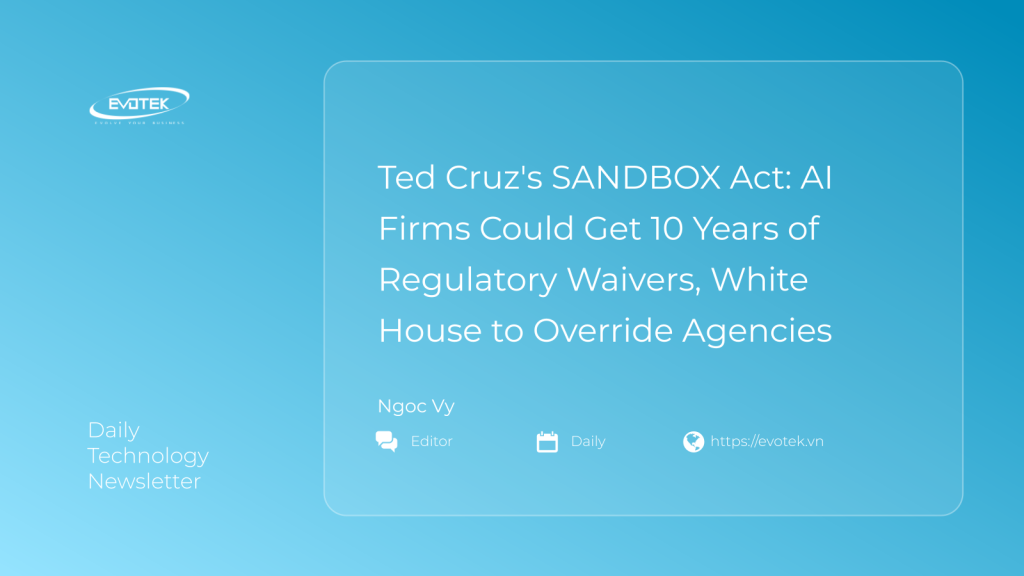Senator Ted Cruz recently introduced controversial legislation, dubbed the SANDBOX Act, aimed at significantly reshaping federal oversight of the artificial intelligence (AI) industry. If enacted, this bill would grant AI companies an unprecedented ability to operate with minimal regulatory burden for up to a decade, with the White House holding the ultimate power to greenlight such exemptions.
On Wednesday, Senator Cruz unveiled the proposed legislation designed to establish a regulatory “sandbox.” This framework would enable artificial intelligence companies to experiment and deploy AI products and services under substantially reduced federal scrutiny. Companies would be permitted to apply for modifications to, or outright waivers from, existing “obstructive regulations” that might impede the development or deployment of their AI-powered innovations.
In exchange for these regulatory freedoms, companies would be obligated to submit comprehensive plans detailing how they intend to mitigate potential risks to consumer safety and financial stability. These waivers, if granted, would initially last for two years but could be extended for a total period of up to 10 years. This echoes a previous, unsuccessful attempt to impose a decade-long moratorium on state-level AI regulation, which ultimately failed in the Senate in July.
The authority to approve these critical exceptions would primarily rest with the federal agency whose regulations are in question. For instance, the Federal Trade Commission (FTC), responsible for enforcing online privacy protections, would handle requests related to its purview. A significant provision in the bill dictates that waivers would be automatically approved if the relevant agency fails to respond within 90 days. Furthermore, should an agency reject a company’s application, the company would gain the right to appeal to the White House Office of Science and Technology Policy (OSTP). The OSTP, envisioned as the overseer of this sandbox program, would possess the ultimate authority to overturn an agency’s denial, granting the requested regulatory relief. Congress would receive an annual report detailing all instances of waived or modified federal rules under the program.
The proposed SANDBOX Act has already drawn sharp criticism from various technology accountability and consumer advocacy groups. The Tech Oversight Project has labeled the bill a “sweetheart deal for Big Tech CEOs,” raising concerns that it could create an uneven playing field, potentially favoring larger companies with political connections over smaller startups. Similarly, Public Citizen, a consumer advocacy organization, warns that the legislation could encourage Silicon Valley’s “move fast and break things” ethos to extend to critical laws and regulations. Both groups have specifically highlighted the alarming precedent of the OSTP’s power to overrule federal agencies, many of which have faced previous challenges to their autonomy.
The concept of regulatory sandboxes for AI companies is not entirely new to the political landscape. President Trump’s AI Action Plan, announced in July, explicitly endorsed the creation of such frameworks. Trump’s plan also suggested a method to indirectly enforce a moratorium on state-level AI regulation by potentially rescinding funding to states that choose to implement their own AI oversight. Interestingly, Senator Cruz’s home state of Texas passed its own AI law in June, establishing a similar regulation “sandbox” but limiting its duration to 36 months, significantly shorter than the federal proposal.

 日本語
日本語 한국어
한국어 Tiếng Việt
Tiếng Việt 简体中文
简体中文